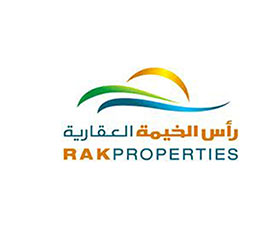
Top Five Tips to Help You Know Your Tenant Rights
Becoming a tenant is an exciting endeavor. It's the opportunity to expand your horizons while hunkering down on a place to call your own.
Maybe you're looking to move into a rental home to provide more space for you and the family.
Perhaps you only have a need for a small studio apartment so that you have a place to call your own.
Whatever the case might be, you're hoping what all tenants hope: to not fall into a sticky situation with your landlord.
Here are several things to consider regarding your tenant rights and how they apply to your rental experience.
1. The Right to a Good Property
One of the biggest things for any tenant is knowing that you're walking into a safe situation.
Some tenants reading this have been burned on that before. They walk into a living situation that seems safe, only to find out that there are hidden setbacks within the walls.
As the tenant, your landlord has an obligation to make sure the property you're occupying is in a safe condition. That way, if any corrections or repairs need to be made, they can be performed without a huge setback that causes you to relocate.
If you feel that your property isn't in the best care, respectfully approach your landlord about the concerns that you have.
2. The Right to Offer Alternative Lease Terms (Prior to Signing)
Many tenants make the mistake of not thoroughly reading through the lease contract that they are given. As a result, they find unexpected and unwanted surprises midway through the lease.
Don't fall into that category of tenants. Any lease is bound to have a few things that you disagree with.
There are those out there that don't believe they have the right to negotiate terms with the landlord. When, in fact, you're encouraged to do so to ensure everyone is on the same page.
If you find a few details that you don't agree with, approach the landlord and offer up alternatives with an explanation of why you feel it needs to be changed.
Part of a landlord's job is to negotiate with tenants, so you aren't causing a huge setback by bringing up some sound points.
3. Research Real Estate Terms and Jargon
One of the biggest ways that someone might try to "bend the rules" of a lease to their advantage is by filling it with real estate terms and jargon you don't understand.
As a result, typically tenants will simply read past the terms they don't know the meaning of, rather than looking it up to gain knowledge.
The best tool that you have on your side is understanding the way that a rental agreement is set up. If you don't have that yet, not to worry... you have the internet to help you learn!
For example, look up the meaning of things such as the right of entry, limits on occupancy, terms of tenancy, subleasing, fixed-term, and assured shorthold tenancy for starters.
You've found your dream rental location, now it's up to you to make sure everything is in order prior to signing the dotted line!
4. The Right to Identify Your Landlord
Plain and simple, you should never rent from a person or a landlord that you haven't met prior to signing your contract and agreeing to their terms.
That's not to say you needed to know them before reaching out to inquire about their property. You just need to prioritize finding a time to meet face to face.
In some situations, such as moving to a new city, meeting face to face won't be possible since you'd like to lock it up before you move.
If that's the case, be sure to gather all of their contact information and do a bit of research on your own. Make sure they're legitimate. If you're having doubts, organize a time to Skype or Facetime for just a few minutes to put a name to the face.
Your landlord is going to be a pivotal part of your happiness in your new home. So meeting them and growing the relationship prior to moving in is vitally important.
5. Get Your Talking Points in Writing
As you walk through the property for a tour or talk to the landlord on the phone, they're sure to make several statements that might be too good to be true.
It's a sales tactic that many try to use verbally because, as long as it's not in writing, they don't have to deliver on their statement.
While it may seem overwhelming to do, you need to make sure to get everything that they listed out in writing.
For example, if they tell you during the tour that it's a quiet neighborhood, you should hold them to that. If they truly believe that, then they'll have no problem writing it out for you.
This goes for any accommodations that they mention to you in passing. Until it's written out for you, you shouldn't trust that they'll deliver on it.
Know Your Tenant Rights, Then Act on Them
Now that you have a firmer idea of your tenant rights, it's time to find the property that you'll be happiest with. Ideally, you'll love it so much that you'll want to stay there for years to come!
Looking for a change of scenery by moving to a brand new place? If so, check out this article for reasons you should consider Yas Island.
For more inquiries, please feel free to reach out via our contact us page and we'll be happy to assist you further.































































































